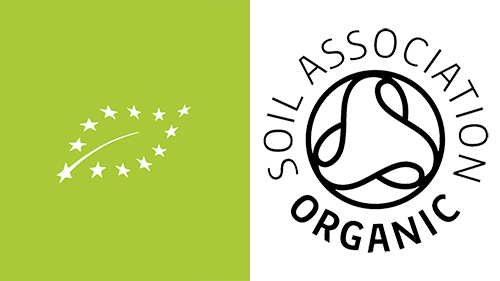There are many organic food and beverage brands out there. For the observant shoppers amongst you, you'll have noticed that of these 'organic' brands, many fail to display any sort of recognisable organic certification. Does this mean their goods are, in fact, not organic at all? We'll provide the facts about organic certification and why it's important that you always look for a recognisable organic logo when buying your coffee.
Coffee is one of the most chemically treated foods in the world.
What is organic coffee?
Very simply, organic coffee is just conventional coffee that has been grown, harvested and processed without the use of any harmful chemicals such as synthetic fertilizers, pesticides, herbicides, fungicides, and insecticides. Conventional coffee is steeped in these nasty chemicals. Unfortunately, much of the area surrounding the coffee farm is impacted by these chemicals and the coffee farmers are subjected to high levels of these chemicals whilst spraying their conventional crops.
Organic coffee, on the other hand, has simply been left to grow on organically-certified coffee plantations and aided only by organic fertilisers such as coffee pulp or chicken manure. Of course, like all things organic, coffee sourced from these plantations tend to be more expensive than that from non-organic farms. This is primarily down to the fact that organic coffee requires greater manpower to tend to given that it is grown in lush, more naturally dense forestry. Conventional coffee is often grown in large open coffee fields which is far easier to harvest.
Organic Certification
Different countries usually have different organic regulatory bodies that govern organic standards of produce being sold in that country. In the UK, there are in fact a total of eight approved organic control bodies. Without doubt, the most recognisable organic control body that applies to coffee is Soil Association. Another widely recognised logo on our coffee packaging is the EU organic logo.
There are numerous logos out there that purport to uphold sustainability and wlfare standards, however, the EU organic logo is the only one that is actually underpinned by law. This means that all organic food and drink sold in the EU must the EU organic regulation. The EU organic logo is shown as a leaf against a green background.
The Soil Association must legally meet the requirements set out as part of the EU organic regulation as an absolute minimum but the Soil Association also uphold even more stringent standards than that of EU organic regulation. For example, EU organic regulation does not allow for 'routine' antibiotic use whereas the Soil Association prohibits the use of antibiotics full-stop. In practice, there are many products that may only display the EU organic logo and what this means is that these products comply with EU organic regulation but do not conform to Soil Association standards.
When it comes to coffee, you may encounter products that display only the EU organic logo, both or perhaps none at all. Unfortunately, there are coffee brands that market their coffee as organic but they cannot provide any certification to prove their coffee is, in fact, organic. This is because despite their coffee perhaps being sourced from an organic-certified farm, once their coffee has left the farm, their coffee has been handled by non-certified organic handlers. This means that there is no guarantee that this 'organic' coffee has not been mixed with or contains remnants of inorganic matter. The only way to absolutely guarantee that your coffee is 100% certified organic is by looking for at least the EU organic logo. Go one better and make sure your coffee contains the Soil Association organic logo.
Your Norlo coffee is always 100% certified Soil Association & EU organic.

(Sources: Soil Association, European Commission, Coffee: Production, Quality & Chemistry)
